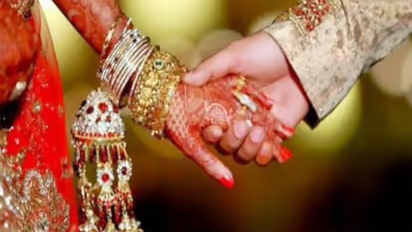Indonesia tribe has bizarre ritual; newly-wed couple not allowed to use toilet for 3 days

Synopsis
The three-day term is overseen by a group of persons. These workers are in charge of providing the couple with modest amounts of food and water so that they do not need to use the restroom.
Weddings are a jumble of customs and processions, especially in Asia. In India, for example, the bride throws grains as she leaves the house so that the house would continue to thrive after her. Some rituals, on the other hand, are so weird that just hearing about them makes you wonder about your sanity, let alone doing them.
For example, the inhabitants of an Indonesian tribe still place great emphasis on a ceremony. According to their traditions, a newly married couple must live for three days without using the restroom following their wedding. Yes, you read that correctly. The pair must hang on to their happiness for the first three days of their marriage in order to keep it throughout the subsequent years of their marriage.
Also Read | Shocking: Woman nearly burnt down her kitchen while live-streaming; watch
The Tidong tribe, who are largely farmers, are the originators of the rite. The Tidong people live in Borneo's north-eastern area, close to the Indonesia-Malaysia border. When a wedding ceremony is place in the tribe, the couple is escorted to a chamber where they must spend the first three days of their marriage once all processions are completed. The pair is not allowed to use the restroom during this time.
The three-day term is overseen by a group of persons. These workers are in charge of providing the couple with modest amounts of food and water so that they do not need to use the restroom. The pair will also be monitored to ensure that they do not cheat or discharge themselves in private.
Also Read: Passenger without flying ability lands aircraft after pilot faints; video goes viral
The ceremony continues to exist because of the firm conviction that if a pair passes, they will have a happy, long-lasting marriage, but if they fail, the marriage would end shortly. People continue to practise this ceremony meticulously in order to avert such alleged trouble.